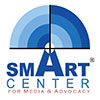- English
- عربي
Program Components
Participating NGOs and Institutions 2015
View the List of NGOs 2013
 The Samir Kassir Foundation
The Samir Kassir Foundation
Samir Kassir was assassinated on June 2, 2005, in Beirut, when a bomb placed under his car was detonated. The tragic death of this journalist and writer was one of many attempts to silence Lebanese free thinkers, put an end to the Independence Intifada, and prevent Beirut’s winds of liberty from spreading across the region. Samir Kassir, who wrote Beirut’s history, has therefore become a part of this history. The model of intellectual renaissance embodied by Samir Kassir during his life and at the moment of his death, through his articles and academic research, has placed him at the avant-garde of Lebanese and Arab opinion leaders who have paid their life to fight tyranny and lead their country to freedom and independence. Committed to Samir Kassir’s values and aspirations, and believing in the need to renew the Arab culture through freedom of expression, several intellectuals and friends of Samir Kassir established the Samir Kassir Foundation, officially incorporated in Beirut under registry number 30/A.D., dated February 1, 2006.
 UNESCO
UNESCO
In 1945, UNESCO was created in order to respond to the firm belief of nations, forged by two world wars in less than a generation, that political and economic agreements are not enough to build a lasting peace. Peace must be established on the basis of humanity’s moral and intellectual solidarity. UNESCO strives to build networks among nations that enable this kind of solidarity, by: Mobilizing for education: so that every child, boy or girl, has access to quality education as a fundamental human right and as a prerequisite for human development. Building intercultural understanding: through protection of heritage and support for cultural diversity. UNESCO created the idea of World Heritage to protect sites of outstanding universal value. Pursuing scientific cooperation: such as early warning systems for tsunamis or trans-boundary water management agreements, to strengthen ties between nations and societies. Protecting freedom of expression: an essential condition for democracy, development and human dignity.
 Smart Center
Smart Center
SMART Center for Media and Advocacy is a nonprofit, non-religious, non-confessional civil organization, founded in 2007 by group of specialized civil society activists, who are all dynamic change agents, committed to educate and equip individuals and groups with necessary tools to become better citizens and active in the fields of Media, Human Rights, Development, Peace Building, Conflict Resolution, Social Economy, Democracy and Citizenship. SMART Center’s work’s guiding principles are those of the universality of human rights and the participation and inclusion of all target groups and marginalized people in its endeavors. SMART Center for Media and Advocacy combines in its work the various methods of advocacy especially through media, lobbying, action-research, resources development, training and raising awareness.
 AFDC
AFDC
The Association for Forests, Development and Conservation (AFDC) was established in 1993 to achieve sustainable conservation of natural resources, raise awareness and build capacities to contribute to the national efforts for better environmental management. Fundamental to AFDCs mission is the pursuit of community-based conservation for the sustainable livelihoods of people. This comes from the idea that conservation will fail if local communities do not benefit from it. AFDC’s objectives include: Developing local communities while maintaining conservation and the sustainable management of forests and natural resources. Capacity building and public awareness in fields and issues related to the environment and sustainable development. Conducting and disseminating studies and research related to different environmental and sustainable development issues. Lobbying for changes in environmental and sustainable development policies.
 National Democratic Institute
National Democratic Institute
The National Democratic Institute is a non-profit, non-partisan, non-governmental organization that has supported democratic institutions and practices in every region of the world for more than two decades. Since its founding in 1983, NDI and its local partners have worked to establish and strengthen political and civic organizations, safeguard elections, and promote citizen participation, openness and accountability in government. NDI has worked with local partners in 125 countries and territories, bringing together individuals and groups to share ideas, knowledge, experiences and expertise.
 Arab NGO Network Development - ANND
Arab NGO Network Development - ANND
The Arab NGO Network for Development (ANND) is a regional network, working in 12 Arab countries with seven national networks (with an extended membership of 200 CSOs from different backgrounds) and 23 NGO members. ANND was established in 1997 and its headquarters is located in Beirut, Lebanon since 2001. ANND aims at strengthening the role of civil society, enhancing the values of democracy, respect of human rights and sustainable development in the region. ANND advocates for more sound and effective socio-economic reforms in the region, which integrate the concepts of sustainable development, gender justice, and the rights-based approach.
 Lebanese Association for Democratic Elections
Lebanese Association for Democratic Elections
LADE’s main goals are to reform the administrative and electoral systems to ensure an accurate representation and effective participation; to raise the level of awareness of Lebanese citizens and enable them to participate in the political process; and to ensure democratic electoral processes. To achieve these goals, LADE proposes alternative systems and laws in the field of elections, decentralization, and laws leading to the abolition of political sectarianism and advocate to adopt these reforms. It also conducts workshops and extensive field events with citizens and periodic reports especially in the elections period.
![logo-kayany-(2)[1].jpg](/en/images/logo-kayany-%282%29%5B1%5D.jpg) Kayany Foundation
Kayany Foundation
KAYANY Foundation is a Lebanese Non-Governmental Organization (registration no.1806) founded by Mrs. Nora Sharabati Joumblatt in 2013. Established in response to the Syrian refugee crisis in Lebanon, Kayany delivers aid and initiates educational projects in informal tented settlements within the Bekaa governorate and its surrounding areas. Kayany has three informal schools that provide free education for Syrian refugee kids between the ages of 6 and 14. The fourth school (opening in May 2015) will provide free education and vocational training for 200 adolescent girls (Total students covered: 1100). Kayany has effectively coordinated with UNHCR, the Ministry of Higher Education, the Ministry of Social Affairs, and a number of other (I)NGO partners to ensure timely and coherent implementation of all projects.
 The Lebanese Transparency Association
The Lebanese Transparency Association
LTA, which was established in May 1999, is Transparency International (TI)’s Lebanese chapter. It is the first Lebanese NGO that focuses on curbing corruption and promoting the principles of good governance. Realizing the unacceptable levels corruption reached in Lebanon and the need to act against it, a group of business people, academics, economists, lawyers and intellectuals joined forces to found LTA in May 1999 in a bid to curb corruption through civil society. The organization resorts to all appropriate means to fight corruption, improve the quality of life, and encourage civil society to take measures towards transparency and accountability. LTA does not investigate or expose individual cases of corruption, instead, LTA advocates for reform by focusing on systemic improvement and by building coalitions with other anti-corruption stakeholders, including the government, parliamentarians, the private sector, media institutions, the international community and civil society organizations.
 MEPI LAA
MEPI LAA
Middle East Partnership Initiative Lebanon Alumni Association (MEPI-LAA) is a registered (88 A/D) nongovernmental, nonpartisan and non-religious organization of 120 members and a network of positive thinkers and advocates of change that was established in 2010. We aim to create public value for the Lebanese society within four pillars: Democracy, Education, Economics and Women empowerment. We implement activities that include drafting policy recommendations, contributing to human development, enhancing citizenship and promoting the rule of law. Our diverse backgrounds, openness to dialogue, outreach, and inherent synergy are the landmarks of our success. Our vision of success is an empowered MEPI Alumni, a network that has become a hub for Lebanese civil society.
